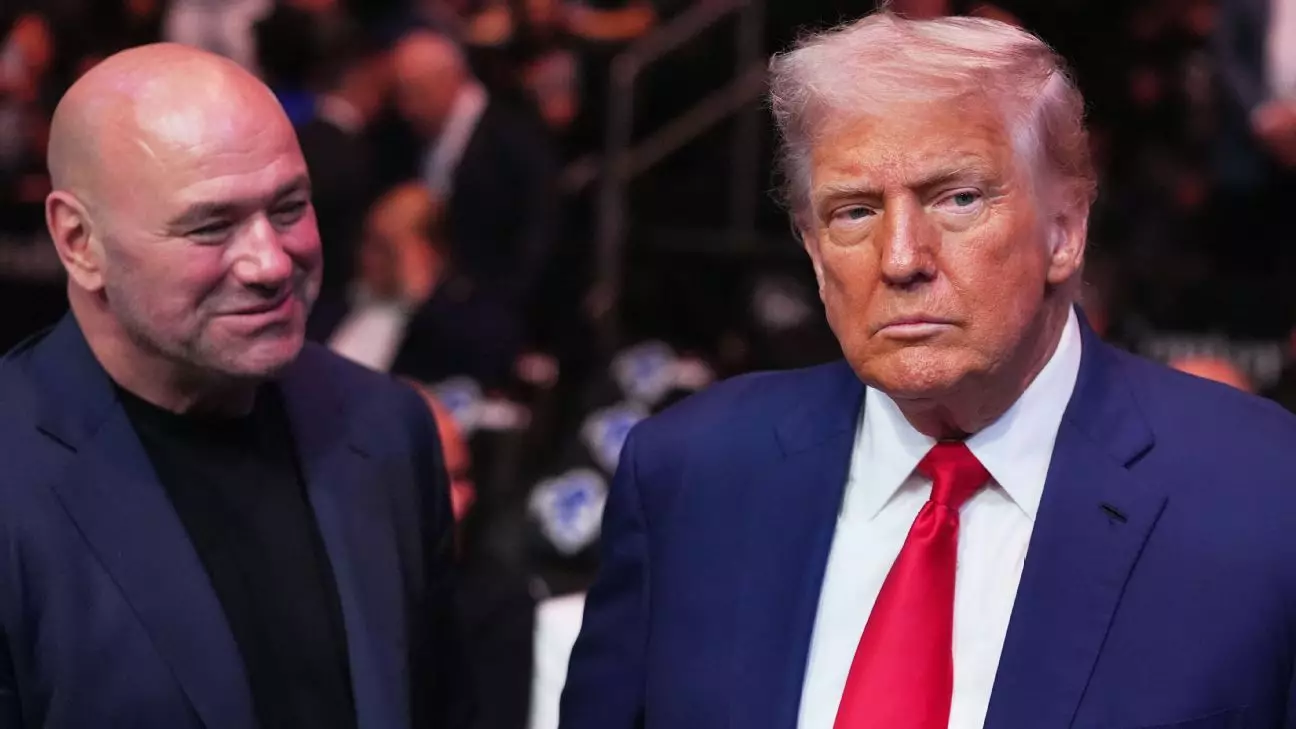In an era where traditional symbols of patriotism sometimes feel distant or disconnected from the younger generation, President Donald Trump’s proposal to host a UFC match on the White House lawn presents a provocative shift. It’s a daring combination of history and high-energy entertainment, blending America’s revolutionary past with contemporary sporting culture. This idea isn’t merely about hosting a fight; it’s an intentional act of redefining how national milestones can be celebrated. Rather than conventional parades or fireworks, Trump envisions a visceral, emotionally charged display that captures the raw spirit of American resilience and strength through a visceral sport like mixed martial arts.
By suggesting an event with thousands of spectators, Trump aims to forge a vibrant, community-centered celebration that bridges generations. This concept challenges the typical expectations of national commemorations, pushing for a more dynamic, participatory form of patriotism that embraces modern culture as a vessel for unity and pride. It signals a willingness to think outside the box, demanding that celebrations be bold, memorable, and unapologetically intense.
The Symbolism and Impact of Politicizing the Arena
Hosting a UFC fight on government-owned grounds is, at its core, a bold political statement. It merges the spectacle of sport with national identity, transforming the White House grounds from a symbol of diplomacy into a battleground of cultural expression. For supporters, it’s an exhilarating assertion that America’s toughness and competitive spirit are integral to the national ethos, especially during significant anniversaries. For critics, however, it risks trivializing the solemnity of the occasion in favor of spectacle, turning a noble celebration into entertainment.
Moreover, President Trump’s personal affinity for UFC enhances the symbolism. His frequent attendance at fights and friendships with key figures like Dana White paint him as a leader who identifies deeply with the combat sports community. This connection, whether viewed as authentic patriotism or opportunistic showmanship, is undeniable in shaping the narrative that such an event would embody strength, resilience, and patriotism—all vital themes to emphasize at the 250th celebration. However, the question remains whether this focus on spectacle overshadows more meaningful, inclusive ways to honor American history.
A Dangerous Fusion of Politics and Entertainment
The idea of a political figure orchestrating a high-profile sporting event at the White House raises important questions about the boundaries of civic celebration. It blurs the lines between state functions and entertainment, challenging norms that have historically kept politics and popular culture apart. While it’s not unprecedented for politicians to leverage entertainment for political gain, hosting a UFC fight in such a high-profile venue risks turning a patriotic milestone into a spectacle tailored to political narratives and personal branding.
Despite White House spokespersons claiming that Trump is “dead serious” about this plan, the true implications extend beyond logistics. Such an event could deepen the polarization, with supporters viewing it as a rallying cry for American strength and detractors seeing it as superficial or even inappropriate for a national monument. It’s a gamble that intertwines national pride with the visceral energy of combat sports—a combination that could either invigorate the country or deepen divisions, depending on how it’s executed and received.
The Cultural Shift Toward Spectacle as Patriotism
This proposed UFC event reflects a broader cultural trend: the increasing politicization and commercialization of patriotism. In a world where social media amplifies moments of spectacle, the power of visual and visceral displays becomes central to collective identity. Trump’s vision taps into this by proposing a celebration that is visceral, loud, and unforgettable.
Yet, this approach raises questions about the future of patriotism and public celebration. Does fostering national pride through spectacles like UFC fights dilute historical reverence? Or does it serve as a reflection of a nation that embraces its fighters—both on the mat and in the political arena—as embodiments of its enduring spirit?
By framing patriotism within the high-stakes environment of combat sports, the line between entertainment and activism blurs, creating a potent mixture that could redefine how Americans commemorate their milestones in the digital age. Whether this shift will foster genuine unity or deepen cultural divides remains an open question—one that hinges on whether such spectacles serve to uplift or merely entertain and divide.

